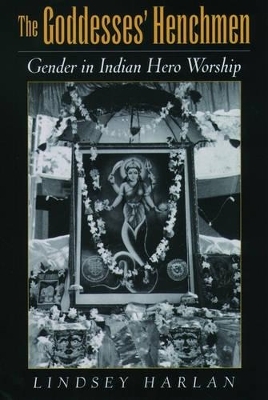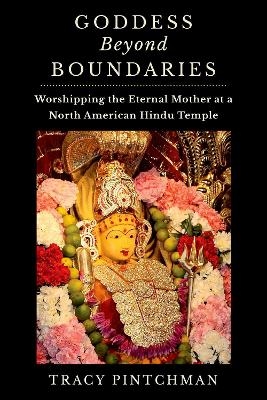
The Goddesses' Henchmen
Gender in Indian Hero Worship
Seiten
2003
Oxford University Press (Verlag)
978-0-19-515426-9 (ISBN)
Oxford University Press (Verlag)
978-0-19-515426-9 (ISBN)
The Rajputs ruled the vast majority of the kingdoms that were joined together after Indian Independence to form the state Rajasthan, "Land of Kings." An important part of Rajput religion is the worship of "heroes" who have died in battle. In this book, Harlan explores the idea of the Rajput hero.
The Rajputs ruled the vast majority of the kingdoms that were joined together after Indian independence to form the state of Rajasthan, "Land of Kings." An important part of Rajput religion is the worship of "heroes" who have died in battle. This practice has attained new significance in recent years, as right-wing Hindu activists have deployed narratives about heroism in Rajput wars with Muslim emperors. In this book, Lindsey Harlan explores the idea of the Rajput hero. She is particularly interested in the role played by gender in stories about heroes and in their worship. She looks at the differences between female and male storytellers, the relationships of the hero to the women in his tale, and the relationship of the hero to the goddess for whom he is both sacrifice and henchman. She obtains her materials from interviews with Rajput families and their servants, from songfests, from bystanders at shrines, from ritual specialists. Ultimately she shows how heroic traditions encapsulate and express ideals of perfection and masculinity, defined most visibly against the backdrop of domesticity and femininity. More broadly she argues that heroes reflect ever-changing valuations of history, and serve as sources of inspiration for facing contemporary challenges (domestic, communal, national) and concerns about the future.
The Rajputs ruled the vast majority of the kingdoms that were joined together after Indian independence to form the state of Rajasthan, "Land of Kings." An important part of Rajput religion is the worship of "heroes" who have died in battle. This practice has attained new significance in recent years, as right-wing Hindu activists have deployed narratives about heroism in Rajput wars with Muslim emperors. In this book, Lindsey Harlan explores the idea of the Rajput hero. She is particularly interested in the role played by gender in stories about heroes and in their worship. She looks at the differences between female and male storytellers, the relationships of the hero to the women in his tale, and the relationship of the hero to the goddess for whom he is both sacrifice and henchman. She obtains her materials from interviews with Rajput families and their servants, from songfests, from bystanders at shrines, from ritual specialists. Ultimately she shows how heroic traditions encapsulate and express ideals of perfection and masculinity, defined most visibly against the backdrop of domesticity and femininity. More broadly she argues that heroes reflect ever-changing valuations of history, and serve as sources of inspiration for facing contemporary challenges (domestic, communal, national) and concerns about the future.
| Erscheint lt. Verlag | 26.6.2003 |
|---|---|
| Zusatzinfo | 18 halftones |
| Verlagsort | Oxford |
| Sprache | englisch |
| Maße | 234 x 155 mm |
| Gewicht | 391 g |
| Themenwelt | Geisteswissenschaften ► Religion / Theologie ► Hinduismus |
| Sozialwissenschaften ► Ethnologie ► Volkskunde | |
| Sozialwissenschaften ► Soziologie | |
| ISBN-10 | 0-19-515426-6 / 0195154266 |
| ISBN-13 | 978-0-19-515426-9 / 9780195154269 |
| Zustand | Neuware |
| Haben Sie eine Frage zum Produkt? |
Mehr entdecken
aus dem Bereich
aus dem Bereich
Worshipping the Eternal Mother at a North American Hindu Temple
Buch | Hardcover (2024)
Oxford University Press Inc (Verlag)
79,80 €


